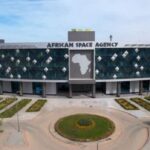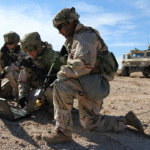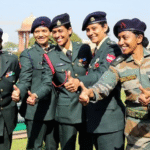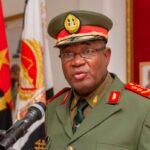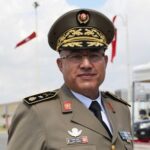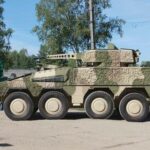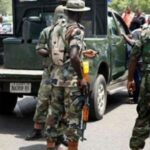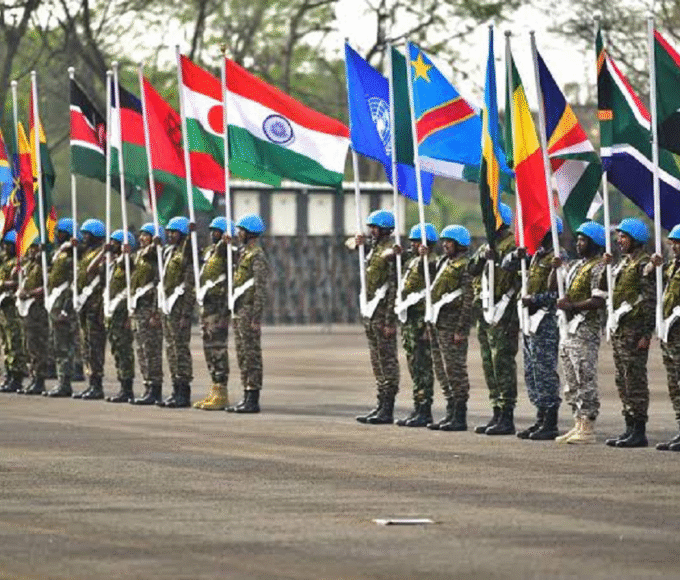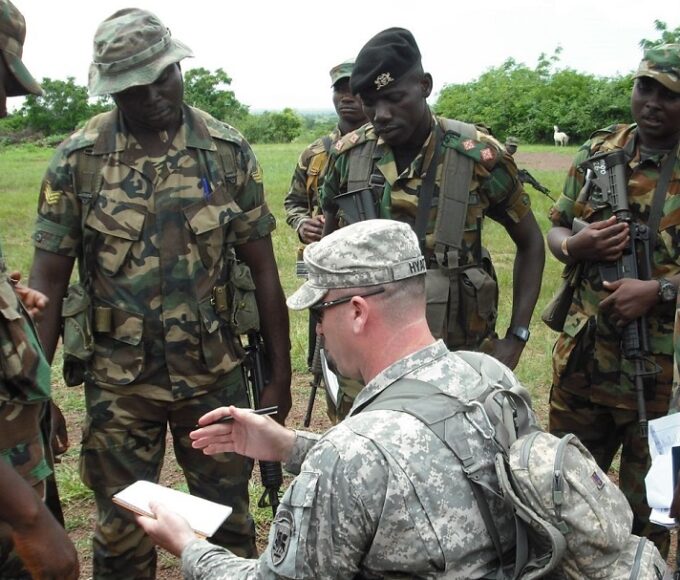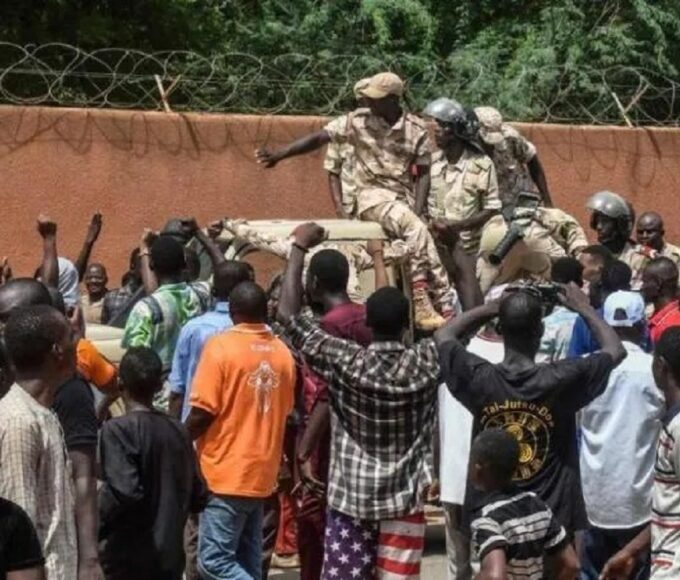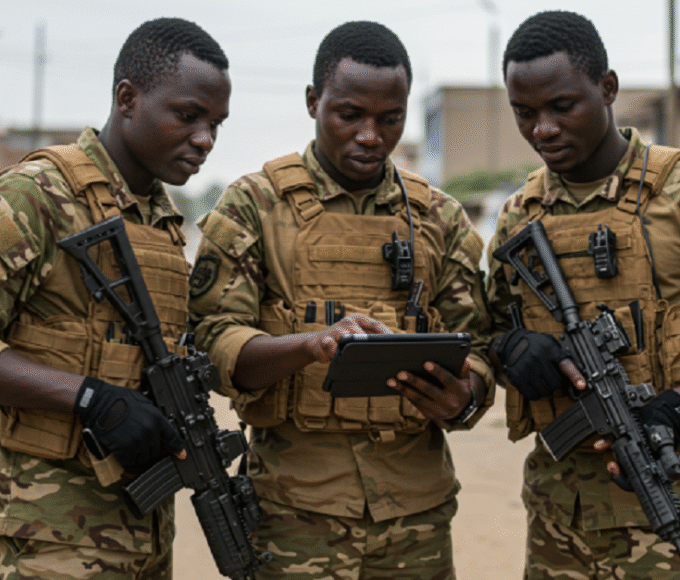Lieutenant General Christian Tshiwewe Songesha: Leading Congo’s Armed Forces Through Adversity and Transition
Regionally, the DRC has taken a more active role in multilateral security frameworks such as the East African Community Regional Force (EACRF) and the Southern African Development Community (SADC) standby brigade.

In the heart of Central Africa lies one of the continent’s most complex security environments—and at its centre stands the Democratic Republic of the Congo (DRC), a vast nation striving for stability amid persistent unrest. Ranked 73rd globally in the 2024 Global Firepower Index with a PowerIndex score of 1.2491, the DRC’s Armed Forces reflect both the immense challenges and enduring resilience of the country. Steering this force with quiet determination is Lieutenant General Christian Tshiwewe Songesha, Chief of General Staff of the Armed Forces of the DRC (FARDC).
Spanning over 2.3 million square kilometres and bordered by nine countries, the DRC occupies a critical geopolitical space. Its security terrain is as vast as it is volatile—marked by protracted internal conflicts, foreign-backed armed groups, and transnational criminal networks. With over 166,580 active personnel, the FARDC remains the most essential institution for preserving the DRC’s sovereignty and holding the fragile state together.
Despite operating under a constrained defence budget of just $300 million, the Congolese military plays an outsized role in national cohesion, civil protection, and regional diplomacy. Lieutenant General Tshiwewe’s command is defined by the difficult but vital task of rebuilding credibility and capacity in a force long strained by corruption, fragmentation, and under-resourcing.
A native of Lubumbashi and a career officer known for his discipline and loyalty, Lieutenant General Christian Tshiwewe rose through the ranks with experience in elite protective units. Before his appointment as Chief of General Staff in 2022 by President Félix Tshisekedi, he led the Republican Guard—an elite force charged with protecting national institutions.
His ascent to the top military post was seen as part of a wider reform effort, aimed at professionalising the military and restoring its constitutional role. Tshiwewe brought with him a new tone of leadership: firm but reform-oriented, focused on unity, loyalty, and command accountability.
From the embattled eastern provinces of North Kivu and Ituri to the dense jungles of South Kivu, the FARDC is engaged in daily operations against a patchwork of militias, including the M23, ADF, and other local and foreign-backed insurgent groups. Tshiwewe has emphasised improving operational coordination, equipping frontline units, and enhancing civilian protection—a core challenge given the terrain, lack of infrastructure, and complex political environment.
While the FARDC faces acute logistical and technological gaps, it retains strength in its numbers and experience in irregular warfare. Under Tshiwewe’s leadership, efforts are ongoing to improve intelligence gathering, strengthen air mobility, and establish rapid deployment capacity in strategic zones.
Lieutenant General Tshiwewe is a key player in the DRC’s defence reform agenda. He has supported initiatives to retire unfit officers, streamline command structures, and strengthen military justice systems. His leadership coincides with increased international engagement, including military training partnerships with Belgium, China, and the United States.
Regionally, the DRC has taken a more active role in multilateral security frameworks such as the East African Community Regional Force (EACRF) and the Southern African Development Community (SADC) standby brigade. Tshiwewe’s command has emphasised sovereignty but acknowledged the value of collaborative security approaches in facing cross-border threats.
Though rarely in the public eye, Lieutenant General Tshiwewe’s leadership is viewed internally as a stabilising influence in the upper echelons of the military. His approach reflects a sober understanding of the military’s limitations, but also a belief in its potential to evolve into a professional, rules-based force.
The DRC continues to slow march toward peace and reform, Tshiwewe’s role as Chief of General Staff will remain pivotal. His ability to balance military necessity with institutional integrity will help define whether the FARDC can become not only a protector of territory but a pillar of national renewal.
Recent Posts
Categories
- Air & Aerospace16
- Border Security15
- Civil Security4
- Civil Wars4
- Crisis5
- Cyber Security8
- Defense19
- Diplomacy19
- Entrepreneurship1
- Events5
- Global Security Watch6
- Industry8
- Land & Army8
- Leadership & Training5
- Military Aviation5
- Military History27
- Military Speeches1
- More1
- Naval & Maritime9
- Resources2
- Security12
- Special Forces1
- Systems And Technology9
- Tech6
- Uncategorized3
- UNSC1
- Veterans6
- Women in Defence9
Related Articles
INDIA’S GROWING MILITARY PARTNERSHIPS WITH AFRICA
India’s engagement with Africa is undergoing a quiet but powerful transformation. What...
ByKing Richard Igimoh, Group Editor ALOOctober 14, 2025EVOLVING HORIZONS: TRAINING THE AFRICAN SOLDIER IN A CHANGING LANDSCAPE
The training of African soldiers has undergone a profound transformation in recent...
ByKing Richard Igimoh, Group Editor ALOOctober 2, 2025COLD WAR AFRICA: PROXY WARS AND THEIR IMPACT
The Cold War in Africa, spanning from the late 1940s to the...
ByKing Richard Igimoh, Group Editor ALOSeptember 26, 2025AI AND AFRICA’S MILITARY INTELLIGENCE: PROMISE AND PERIL IN A TRANSFORMING SECURITY LANDSCAPE
Africa’s military landscape is entering a new chapter, shaped by the rapid...
ByKing Richard Igimoh, Group Editor ALOSeptember 22, 2025


